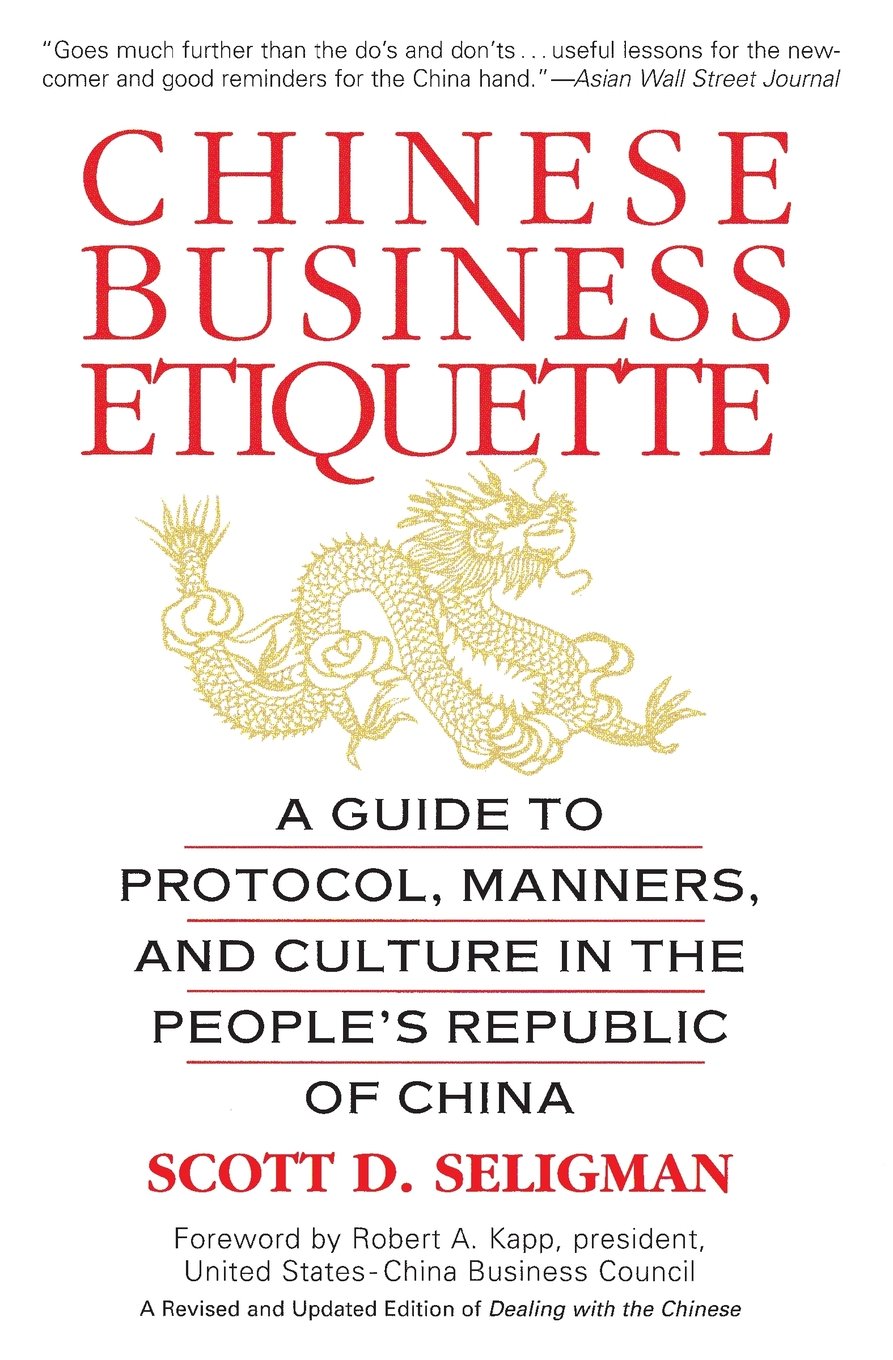Chinese Business Etiquette Summary

5 min read ⌚
 A Guide to Protocol, Manners, and Culture in thePeople’s Republic of China
A Guide to Protocol, Manners, and Culture in thePeople’s Republic of China
If you have ever worked with a Chinese person, you are familiar with their hospitality.
However, their “yes” sometimes isn’t real; so, the people are wondering how to function properly if a simple nod means “I’m listening.
Who Should Read “Chinese Business Etiquette”? And Why?
Chinese Business Etiquette is great for newcomers for two reasons: first of all it helps them to deal with bureaucracy, and second, it will make their stay in China more comfortable.
This book comes highly recommended for all those foreigners who currently reside in China and those who plan to visit it in the near future.
About Scott D. Seligman
 Scott D. Seligman is an American-born historian, writer, and retired executive from Orient New Jersey. He has obtained degrees from both Harvard and Princeton University.
Scott D. Seligman is an American-born historian, writer, and retired executive from Orient New Jersey. He has obtained degrees from both Harvard and Princeton University.
His master degree from Harvard University granted him an opportunity to teach in Taiwan where he discussed many important subjects. He assisted in the process of finding the American Chamber of Commerce in China where he had an executive role.
Scott D. Seligman has also written plenty of articles related to the Chinese way of life and culture.
“Chinese Business Etiquette Summary”
In the early 90s, the Chinese people experienced changes in their state regulation. A country known for its Leninist perspective suddenly transformed into a new social governance in favor of old Chinese symbols and characteristics.
The Western influence undoubtedly played its part to reshape the Chinese society. The new government wanted to maintain a strict line which will indicate the difference existing between the East and the West. The Chinese society and culture partially embraced the Western-effect in terms technology, digitalization, education, and most importantly manners.
That was the birth of a new modern China, with more liberal external and internal policies. A large portion of the communist conservative and stringent protocols are still in use even this very day.
Many foreigners take this as a sign that despite China’s openness there are still some old basic rules and orders which must be obeyed. Their culture is too precious to be destroyed by external factors that threaten the Chinese history.
According to people from divergent backgrounds, who discussed business matters with a Chinese delegation, the first thing they’ve noticed is discipline and respect. So, if you want to enjoy their company, you should work on that.
The core behavior of China is probably their warm hospitality and special treatment. This refers to their mentality – meaning that any stranger will be treated with utmost confidentiality according to its needs. Ancient history speaks a lot about Chinese dignity even towards their enemies, so, this will probably not come as a surprise.
In spite of their attitude, you should never underestimate the importance of the relationship you have with that particular person or group of people (depending on the situation). The protocol for managing conversations in business meetings have a slightly different protocol than regular interactions.
In favor of mutual benefit, in a meeting, you should always strive to present your opinions with a dose of authority while paying extra attention to etiquette.
The author of “Chinese Business Etiquette” – Scott D. Seligman shares his working experience with its readers (while staying and living in China) by presenting this adjusted and updated edition of this classic.
The Ex-chairman of the American Chamber of Commerce – James McGregor, declared, ” should be a mandatory carry-on item for all business people located in China – take care of it.” It means a lot more than a conventional how-to guidebook.
Wars have shaped the today’s borders, but globalization destroyed the era of cultural ignorance and marked the age of a new social learning and acceptance.
It is by all means designed to bring improvement into our society. One of the key aspect to which Scott D. Seligman is the importance of “Saving Face”. If you are a Westerner, you’ll be thrilled with the way they communicate with foreigners.
Even in the 21st century, the Chinese companies use Intermediaries to handle business-related interactions with strangers. Even if it sounds like a weird thing to do, they take into consideration their partners’ preferences too.
Chinese businessmen emphasize the value of a given “word” as the greatest success indicator in any deal.
To deal effectively with any situation, you must know how to behave; socialization has always been the key that unlocks so many doors in China.
Nevertheless, the Chinese’s curiousness has led them to travel all across the world meeting foreigners and giving thoughts on other cultures.
Key Lessons from “Chinese Business Etiquette”
1. The People of China are demanding
2. Chinese administration’s hard to handle
3. China treats everyone equally
The People of China are demanding
Do you know that Chinese love taking trips in groups?
According to them the best way to promote their business or state is by sending a delegation with one purpose – to assess foreign technological power or economy. Nevertheless, everyone knows that hosting the Chinese is anything but easy.
Chinese administration’s hard to handle
Scott D. Seligman, speaks a lot about China’s bureaucracy in a negative manner. Every system’s hard to change if a nation is dependent on it – making the people resistant to something new.
The Chinese often say – the administration works for the sake of the Chinese people not for foreigners.
China treats everyone equally
Many nations even today have difficulties in integrating women into country’s business life.
In spite of other eastern countries like Japan and Korea, the Chinese people believe that women are equal to men – mostly referring to business settings.
Like this summary? We’d Like to invite you to download our free 12 min app, for more amazing summaries and audiobooks.
“Chinese Business Etiquette” Quotes
In Chinese business culture, humility is a virtue. Share on X Chinese tend to go all out for those within their own circles, sometimes putting themselves at great inconvenience or even in ethically questionable circumstances to do a favor for them. But Chinese treat strangers almost as if they do… Share on X Since Confucius codified the universe of interpersonal relationships and their associated duties nearly 2,500 years ago, the Chinese have had an established set of principles governing etiquette on which they have always been able to rely. Share on X Count on your Chinese counterpart to be genuinely interested in finding common ground and in learning from you. The fact that you are a foreigner will generally work in your favor. With few exceptions, the Chinese have a natural… Share on XOur Critical Review
China has a history which speaks about the human way of life. The brand-new cultural learning surely destroys all the invisible boundaries between the two hemispheres.
The readers will be introduced to an up-to-date, comprehensive tour of protocols, manners, and most importantly – character because Scott D. Seligman digs deep into the Chinese culture, revealing its secrets and analyzing their behavior while conducting everyday activities.








